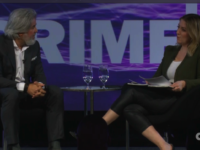Margaret Atwood, the famed Canadian author, has been the target of a predictable backlash for her comments criticizing Bill C-11. Her comments, which came in the aftermath of Senator David Adams Richards forceful denunciation of the bill on the Senate floor, describe the bill as “well meaning”, but express concern about the uncertainty over how it will be interpreted, the role of government officials in determining what counts as Canadian, and the secrecy associated with the CRTC. The reaction has led to columnists suggesting she’s speaking nonsense and one writer group calling her comments “misguided and uninformed”. Yet the reality is that Atwood’s comments are consistent with longstanding criticisms raised by many stakeholders. So why the backlash?
Post Tagged with: "crtc"
Actions Speak Louder than Words: Ministers Rodriguez and Champagne Post Mandate Letter to New CRTC Chair Vicky Eatrides
Canadian Heritage Minister Pablo Rodriguez and ISED Minister François-Philippe Champagne publicly released what amounts to a mandate letter to new CRTC Chair Vicky Eatrides this morning. The letter contains many laudable goals and aspirations: a more timely, transparent, and inclusive commission, an emphasis on competition in telecom, and an affirmation of the importance of freedom of expression in broadcast. Yet what matters when it comes to the current government and communications issues is not what it says, but what it does. The letter may represent a tacit acknowledgement of the disaster that was the Ian Scott era – the ministers themselves note the waning public trust in the CRTC – but the problems go beyond its chair.
Senate Passes Updated Bill C-11 as Heritage Minister Rodriguez Suggests Government Will Reject Any Amendments that Have an Impact
Bill C-11 entered what may be its final phase yesterday with a near split screen: at the Prime Time conference held at the Westin Hotel in Ottawa was Heritage Minister Pablo Rodriguez telling an industry audience that he would reject any Senate amendments that have an impact, stating “there are amendments that have zero impact on the bill and other that may have some and we will not accept them.” The clear signal was that despite heralding the Senate study of the bill as one of the most extensive ever, he will reject any of their findings that might actually make changes. Meanwhile, across the street, the Senate was in its final third reading debate of Bill C-11, closing the day by passing the bill with 26 amendments that include a change that scopes out user content but leaves professional music intact, consistent with the government’s stated objectives.
“This Law Will Be One of Scapegoating All Those Who Do Not Fit Into What Our Bureaucrats Think Canada Should Be”: Bill C-11 is Back with Stunning Rebuke From Senator David Adams Richards
Senator David Adams Richards, an acclaimed Canadian author who has won Governor-General Awards for both fiction and non-fiction as well as a Giller Prize, provided the most memorable Senate speech for the ill-fated Bill C-10, stating on the Senate floor in June 2021 that “I don’t think this bill needs amendments; I think, however, it needs a stake through the heart.” Bill C-10 died on the order paper soon thereafter, but its successor, Bill C-11, is in its final stages of debate at the Senate. Yesterday’s first day of third reading debate was notable for several reasons, none more than the re-emergence of Senator Richards, who provided a stunning rebuke of the bill and Canadian cultural policy.
Champagne’s Choice
The Rogers-Shaw merger saga was always destined to end on the desk of Innovation, Science and Industry Ministry François-Philippe Champagne. The merger has followed a familiar pattern: the companies started with a plan to merge without any divestitures that never stood a serious chance of approval, followed by adopting the Bell-MTS playbook of divesting assets to the weakest possible competitor in Xplorenet. When that didn’t fly, Videotron marched in to scoop up the wireless assets at a discount, complete with a story about exporting Quebec competition to other provinces and a politically attractive narrative for a Quebec-based minister who is reported to harbour future leadership ambitions.











